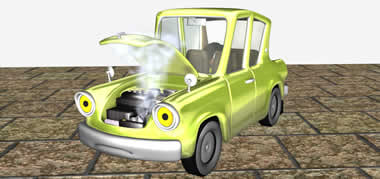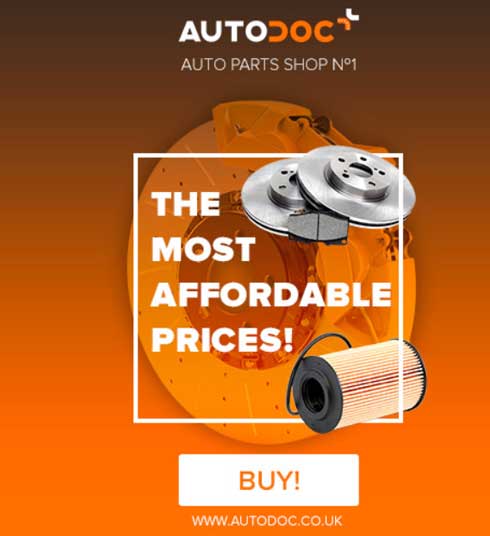Is fitting brake pads a DIY job?
Brake pad removal and replacement is a fairly simple operation, provided that the person carrying the work out knows exactly what needs to be done and is skilled enough to do the job properly. It is not normally a long and expensive process and so it probably isn't worth the while of anyone with DIY skills only to attempt it. There are plenty of specialist brake replacement companies in the UK who generally carry the work out efficiently and economically. If you have any doubts at all about your mechanical abilities let them do it.
All brake pads are not the same though, so it is vital that the right ones are used.
How long should brake pads last?
This depends on many factors, not least of all the driving style of the vehicle owner. The weight of the vehicle and the purpose it is used for are also relevant. As a rough rule of thumb a new set of pads in a family car should last for around 30,000 miles, with the discs lasting for perhaps 60,000 miles, but these figures could differ very considerably.For commercial vehicles or very heavy cars the life of a pad could shorten considerably.
How would I know when to change brake pads?
You can inspect them visually and if they look particularly thin you should get them replaced as soon as possible. Squealing noises can indicate the pads are reaching the end of their lives, and some vehicles have indicators that light up when a pad is due for replacement. If you hear grinding from your wheels when you apply the brakes, or the car needs a longer distance than normal to slow down, then they should be replaced immediately.
Are disc pads still made of asbestos?
This used to be a standard material to make brake pads out of, as well as gaskets and clutch plates, but their use is now illegal. However it is still possible that older 'classic' car brakes and other systems still contain asbestos and so proper safety precautions should be taken when working on the old cars, since inhaling asbestos dust can create very serious health hazards.
What are modern disc pads made of?
Organic materials such as rubber or carbon are quiet and very effective, but they tend to wear out quickly. These are known as 'non-asbestos organic' or NAO for short.
These are often specified for lightweight vehicles; this is because they are very efficient and since the vehicles are not very heavy their higher rate of wear is not such an issue.
Low metallic non-asbestos organic pads also contain a small mix of metal, commonly copper or steel. This helps with heat transfer and also makes the brake more efficient. The drawback is that they are noisier than pure organic ones and they tend to cause more damage to discs.
These are commonly used on medium sized cars.
Semi-metallic pads contain anywhere between about one third and two thirds metal. This gives them good heat transfer but this is at the cost of increased noise and wear on brake discs. Their usage is often recommended in heavier vehicles.
Ceramic pads are composed of ceramic strands; this is a material very similar to that used in pottery, but it is a more durable version. Thin strands of copper are included which assist in cooling. They are long-lasting, very efficient and quiet in use. They withstand heat very well which means that under hard use they are far less likely to warp or suffer damage than any other kind of pad. On the negative side however they are far more expensive than the other types.
Ceramic pads are often specified for very high performance vehicles.
Which type of brake pads should I buy?
Pad manufacturers usually sell brake pads which are, in their opinion, the most suitable for the cars that they are designed to be used in. All the types of pads have different good and bad points and the choice of the exact materials to be used is usually a compromise between braking efficiency, noise and longevity. What is the best all-round pad for a very lightweight car is not the best one for a heavy commercial vehicle.
Unless you are very knowledgeable about braking systems you are probably best sticking to the type of pads that the manufacturers recommend for your particular car.






